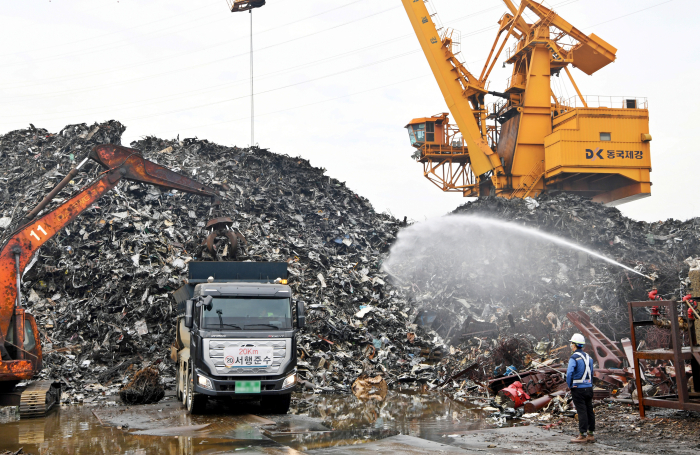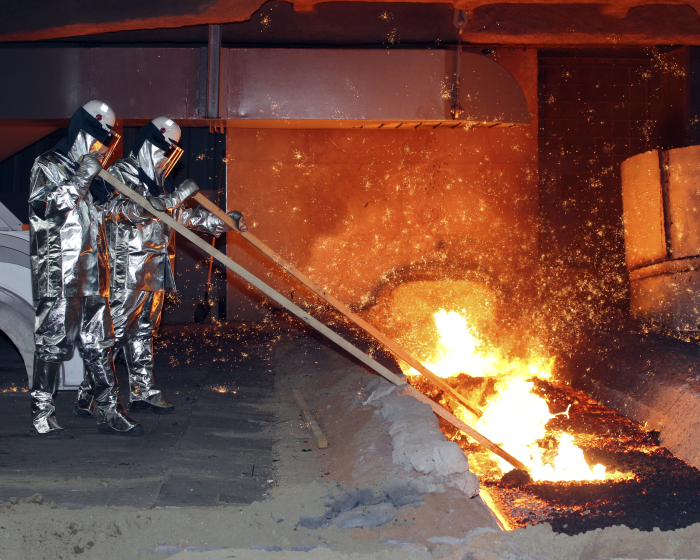Korean steel mills rush to secure metal scrap from abroad
POSCO plans to buy a stake in an overseas steel scrap company in its transition to low-carbon production
By Dec 20, 2021 (Gmt+09:00)
LG Chem to sell water filter business to Glenwood PE for $692 million


KT&G eyes overseas M&A after rejecting activist fund's offer


Kyobo Life poised to buy Japan’s SBI Group-owned savings bank


StockX in merger talks with Naver’s online reseller Kream


Meritz backs half of ex-manager’s $210 mn hedge fund



South Korean steelmakers, led by POSCO Co., are rolling up their sleeves to secure metal scrap as they are shifting into less carbon-intensive steel production, which uses steel scrap as a raw material.
The world's fifth-largest steelmaker produces 40 million tons of molten metal annually. Recyclable steel accounted for 20% of the raw materials used in its furnaces this year, versus the previous year's 15%. It plans to increase the proportion to 30% by 2025.
POSCO's move kept other electric furnace-based steel mill operators in South Korea alert to a further supply crunch of metal scrap, pushing them to draw up measures to ensure a stable supply of the raw material. Electric furnaces use steel scrap and coke from coal to produce steel.
Dongkuk Steel Mill Co. recently built a directly run scrapyard in Japan to gather metal scrap. Hyundai Steel Co., which operates both electric and blast furnaces, recently bought a large-size scrapped ship for metal recycling.
South Korea is 80% self-sufficient for its steel scrap needs with an annual volume of 18 million tons, and imports 4 million to 6 million tons annually from the likes of Russia, Japan and the US.
But those exporting countries have implemented measures to limit exports, including imposing export taxes, driving steel scrap prices to a 13-year high last month.

PRICE REBOUND
The average price of heavy melting scrap A, regarded as a benchmark indicator, was quoted at 572,000 won ($480) per ton in the second week of this month. Heavy melting scrap A breaks down into quality steel bars and H beam scrap.
The price is below the 13-year peak of 605,000 won hit in the first week of November, but still over 80% from the previous year's December average of 312,000 won.
Metal scrap is now widely used for the production of not only steel bars and beams for the construction industry, but also steel sheets and plates used for vehicles and vessels.
Write to Jung-hwan Hwang at jung@hankyung.com
Yeonhee Kim edited this article.
-
 Scrap metal scarcitySteel scrap in high demand in steelmakers' push to cut emissions
Scrap metal scarcitySteel scrap in high demand in steelmakers' push to cut emissionsNov 07, 2021 (Gmt+09:00)
3 Min read -
 SteelHyundai Steel, Samsung develop tech to recycle chip waste for steelmaking
SteelHyundai Steel, Samsung develop tech to recycle chip waste for steelmakingSep 27, 2021 (Gmt+09:00)
1 Min read -
 Scrap metal scarcityChina’s heavy imports of copper, steel scrap hurt Korean SMEs
Scrap metal scarcityChina’s heavy imports of copper, steel scrap hurt Korean SMEsMay 26, 2021 (Gmt+09:00)
2 Min read


